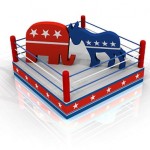 A recent study from UCL reveals that people are more likely to believe political news if it confirms their existing beliefs, even if the information is extreme or incorrect. When participants were presented with politically charged information, they found it difficult to discern its accuracy and tended to trust news that matched their political views.
A recent study from UCL reveals that people are more likely to believe political news if it confirms their existing beliefs, even if the information is extreme or incorrect. When participants were presented with politically charged information, they found it difficult to discern its accuracy and tended to trust news that matched their political views.
Furthermore, the study discovered that individuals were inclined to trust news that pushed them towards more extreme positions, even if the information could be true or false. This trend could exacerbate political polarization by reinforcing pre-existing beliefs and driving people towards more extreme viewpoints.
Siding with their team
“In situations where people are uncertain about whether news is true or not, they often decide its veracity based on whether they want it to be true rather than whether it is actually true, driven by a bias called motivated reasoning,” the researchers explain. “In the context of political beliefs, motivated reasoning leads people to disagree not just on policies or interpretation, but on basic facts about the world.”
In order to gauge the influence of political beliefs on people’s perception of news accuracy, researchers designed an experiment. They recruited 1,300 individuals from various political backgrounds in the United States for an online study. These participants were presented with new information and asked to interpret it based on their responses to factual questions.
Participants in the study were asked a series of questions with numerical answers about current events, such as “By what percent did the murder rate go up or down during Obama’s presidency?” These questions were chosen because they were likely to reflect participants’ deeply held political beliefs. For instance, those with pro-Republican beliefs tended to suggest that the murder rate had increased, while those with pro-Democrat beliefs often claimed the opposite.
After responding to these questions, participants were presented with new information related to their initial answers. This information was straightforward, indicating whether their initial numerical responses were too high or too low. Subsequently, participants were asked to predict whether this new piece of information was true or false.
Partisan leanings
Following the experiment, the researchers observed that Democrats and Republicans held differing views on the answers to these questions. However, they found that individuals were nine percentage points more inclined to perceive news as true if it reinforced their politically extreme beliefs, despite the information being less likely to be accurate. For instance, Democrats tended to trust information that pushed them to further underestimate the murder rate after Obama’s presidency, while Republicans leaned towards trusting information that encouraged them to further overestimate it.
“The participants trusted ‘fake news’ that reinforced and exacerbated their biases more than ‘true news’ that brought them closer to the correct answer, even though they had monetary incentives to get the answer right,” the researchers explain. “This tendency shows that people are prone to take up even more extreme and polarized positions if given the opportunity.”
The findings indicate that when the truthfulness of news is uncertain, individuals are more inclined to perceive unfamiliar fake news as credible if it confirms their existing political beliefs. Additionally, when faced with this uncertainty, people tend to gravitate towards more extreme viewpoints aligned with their political ideologies.
The researchers observed that this tendency towards motivated reasoning was evident across various politically sensitive topics, such as immigration, income mobility, crime, racial discrimination, gender, climate change, and gun laws. Furthermore, these effects were consistent across different demographic groups, including gender, age, education level, and religious affiliation.
“One of the more surprising findings from my study is that it’s not just that people are more inclined to believe false information that they want to believe, they also tend to want to go even further,” the researchers conclude. “Something is tethering them to the center, but if you give them the flexibility to interpret news as ‘true’ or ‘fake,’ they tend to move even further to the extremes.”